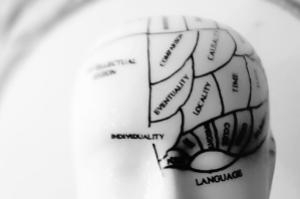10 natural supplements that can transform your mental health
Published 10 Oct 2024 • By Somya Pokharna
Feeling stressed, anxious, or simply want to boost your mood naturally? While medications and therapy are necessary for managing mental health conditions, the role of nutrition is often overlooked.
Research is increasingly highlighting how certain supplements can help support brain health, enhance mood, and reduce symptoms of depression or anxiety.
Discover 10 such supplements to revitalize your mind in this article!

The brain is a complex organ that requires a steady supply of nutrients to function properly. Deficiencies in certain vitamins and minerals can disrupt neurotransmitter production, influence hormone balance, and worsen mental health symptoms. By incorporating the right supplements into a balanced diet, you can support mood stabilization, manage stress, and build greater mental resilience.
Here are the supplements that we recommend:
Omega-3 fatty acids
Omega-3 fatty acids, found primarily in fish oil, are essential for brain health and cognitive function. Studies have shown that individuals with higher intake of omega-3s tend to have lower rates of depression and anxiety. This is partly because these fatty acids support neurotransmitter production, reduce brain inflammation, and enhance the function of serotonin, the “feel-good” hormone. Incorporating omega-3 supplements or adding fatty fish, like salmon and sardines, to your diet can help boost mood and support overall brain health.
Vitamin D
Often referred to as the “sunshine vitamin,” vitamin D plays an important role in mood regulation. It is naturally produced in the body through sunlight exposure, but many people, especially those in colder climates or with limited sun exposure, are deficient in this nutrient. Low vitamin D levels have been linked to conditions such as Seasonal Affective Disorder (SAD) and depression. Research suggests that maintaining optimal vitamin D levels can contribute to a more stable mood and reduce the risk of mood disorders. Supplementing with vitamin D, particularly during the winter months, may help alleviate depressive symptoms and enhance mental well-being.
B vitamins
The B vitamin group, including B6, B12, and folate, is vital for brain function and mental health. These vitamins are involved in the production of neurotransmitters like serotonin and dopamine, which influence mood and behaviour. Deficiencies in B vitamins, particularly B12 and folate, have been associated with increased risk of depression, cognitive decline, and anxiety. B12 is predominantly found in animal products, making supplementation particularly important for those following a vegetarian or vegan diet. Regular intake of B-complex vitamins through diet or supplements can support energy production, reduce mental fatigue, and improve overall psychological health.
Magnesium
Magnesium is an essential mineral that helps regulate the nervous system, making it particularly beneficial for individuals dealing with anxiety and insomnia. It plays a role in neurotransmitter function and has a calming effect on the brain. Magnesium deficiency has been linked to increased anxiety, irritability, and sleep disturbances. Supplementing with magnesium can promote relaxation, reduce symptoms of anxiety, and improve sleep quality. It’s found naturally in foods like leafy greens, nuts, and whole grains, but those struggling with stress-related symptoms may benefit from additional supplementation.
Zinc
Zinc is a trace mineral found throughout the body and is essential for brain development and function. Low levels of zinc have been linked to mood disorders, including depression and anxiety. Zinc’s role in regulating neurotransmitters like serotonin and dopamine makes it a key player in maintaining mental health. Studies suggest that supplementing with zinc can help reduce depressive symptoms, especially when combined with conventional treatments. Foods rich in zinc include meat, shellfish, seeds, and whole grains, but targeted supplementation may be necessary for those with a deficiency.
Saffron
Saffron, a spice derived from the Crocus sativus flower, has shown promise in reducing depressive symptoms. Its mood-enhancing effects are thought to be due to its ability to increase serotonin levels in the brain. Several clinical trials have demonstrated saffron’s effectiveness in improving mild to moderate depression, making it a natural alternative or complementary option for those seeking to boost their mood. However, more research is needed to establish its long-term efficacy and safety.
SAM-e (S-adenosylmethionine)
SAM-e is a naturally occurring compound in the body that plays a role in mood regulation and neurotransmitter production. It is often used as a supplement to help manage symptoms of depression and osteoarthritis. SAM-e can enhance serotonin and dopamine activity, leading to improved mood and mental clarity. While effective for some individuals, it is essential to use SAM-e under the guidance of a healthcare provider, as high doses can interact with certain medications or cause side effects.
N-acetylcysteine (NAC)
NAC is a powerful antioxidant that has been studied for its role in managing mood disorders, including depression and schizophrenia. It works by modulating the levels of glutamate and dopamine in the brain, two neurotransmitters that are critical for mood and cognitive function. NAC has also been used to reduce symptoms of obsessive-compulsive disorder (OCD) and bipolar disorder when used alongside traditional therapies.
Probiotics
The gut-brain axis highlights the connection between gut health and mental well-being. Probiotics, which are beneficial bacteria, can influence the production of neurotransmitters like serotonin and dopamine, potentially improving mood and reducing anxiety. Research suggests that a healthy gut microbiome is crucial for emotional balance, and supplementing with probiotics can be a supportive strategy for enhancing mental health.
Ashwagandha
Ashwagandha is an adaptogenic herb widely used in Ayurvedic medicine to combat stress and anxiety. It helps regulate cortisol levels, the body’s primary stress hormone, thereby promoting a sense of calm and balance. Studies have shown that ashwagandha can reduce symptoms of anxiety and stress while enhancing mental clarity and focus. It is particularly useful for individuals facing chronic stress or burnout.
Final thoughts
Before starting any new supplement, it is important to consult with a healthcare professional. Some supplements can interact with medications or be unsafe for individuals with certain health conditions.
Moreover, while supplements can support mental health, they should not replace conventional treatments entirely. Incorporating them alongside a balanced diet, regular exercise, adequate sleep, and professional care will provide the most benefits.
Did you find this article helpful?
Give it a “Like” and share your thoughts and questions with the community in the comments below!
Take care!
Sources:
11 Herbs and Supplements to Help Reduce Symptoms of Depression — Healthline
5 best supplements to support your mental health, according to a psychiatrist — Fortune Well
8 herbs and supplements to help treat depression — Medical News Today
8 Supplements that Can Help Reduce Anxiety, According to a Psychiatrist — Jefferson Health
Alateeq, D., Korayem, G., Alsubaie, M., Alsafi, F., & Alsulaiman, S. (2022). The Use of Dietary Supplements for Mental Health Among the Saudi Population. European Psychiatry, 65(S1), S613-S614.
Cauffield, J. S., & Forbes, H. J. (1999). Dietary supplements used in the treatment of depression, anxiety, and sleep disorders. Lippincott's primary care practice, 3(3), 290-304.
Chiappedi, M., & Bejor, M. (2010). Herbals and natural dietary supplements in psychiatric practice. Recent Patents on CNS Drug Discovery (Discontinued), 5(2), 164-171.
Diet, Nutrition & Mental Health — McLean Hospital
Firth, J., Teasdale, S. B., Allott, K., Siskind, D., Marx, W., Cotter, J., ... & Sarris, J. (2019). The efficacy and safety of nutrient supplements in the treatment of mental disorders: a meta‐review of meta‐analyses of randomized controlled trials. World Psychiatry, 18(3), 308-324.
Gariballa, S., & Forster, S. (2007). Effects of dietary supplements on depressive symptoms in older patients: a randomised double-blind placebo-controlled trial. Clinical nutrition, 26(5), 545-551.
Hoffmann, K., Emons, B., Brunnhuber, S., Karaca, S., & Juckel, G. (2019). The role of dietary supplements in depression and anxiety–a narrative review. Pharmacopsychiatry, 52(06), 261-279.
Kamat, D., Al-Ajlouni, Y. A., & Hall, R. C. (2023). The therapeutic impact of Plant-Based and Nutritional supplements on anxiety, depressive symptoms and sleep quality among adults and Elderly: a systematic review of the literature. International Journal of Environmental Research and Public Health, 20(6), 5171.
Major review asks which supplements really aid mental health — Medical News Today
Mueller, M., Ganesh, R., & Bonnes, S. (2020). Gut health= mental health? The impact of diet and dietary supplements on mood disorders. Current Nutrition Reports, 9, 361-368.
Niv, N., Shatkin, J. P., Hamilton, A. B., Unützer, J., Klap, R., & Young, A. S. (2010). The use of herbal medications and dietary supplements by people with mental illness. Community mental health journal, 46, 563-569.
Petroaie, A. D., Cosmescu, A., Coman, E. A., & Bolos, A. (2018). Dietary supplements and their influence on our mental health. Bulletin of Integrative Psychiatry, 24(1), 49-57.
Vitamins and Your Mental Health — SageClinic.org
Wu, K., & Messamore, E. (2022). Reimagining roles of dietary supplements in psychiatric care. AMA Journal of Ethics, 24(5), 437-442.
Comments
You will also like

Fighting schizophrenia symptoms: a long journey against paranoia after detainment and denial
12 Dec 2018 • 7 comments

 Facebook
Facebook Twitter
Twitter

